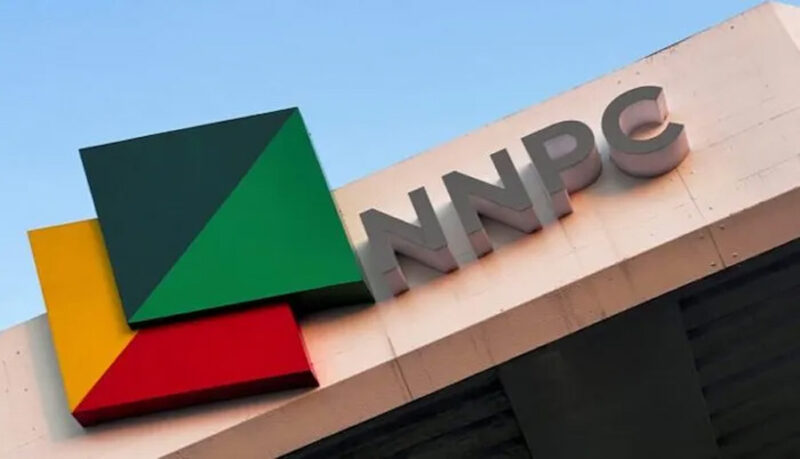Business
HURIWA applauds NNPCL’s transparency, accountability in 2023 financial report

HURIWA applauds NNPCL’s transparency, accountability in 2023 financial report
The Human Rights Writers Association of Nigeria (HURIWA) has commended the Nigerian National Petroleum Company Limited (NNPCL) for its unprecedented display of transparency and accountability in releasing its 2023 Audited Financial Statement (AFS).
HURIWA stated that the NNPCL’s declaration of a net profit of N3.3 trillion, alongside the announcement of a N2.1 trillion dividend, marks a significant milestone in the company’s history and represents a clear departure from the opacity and inefficiency that once characterized the former Nigerian National Petroleum Corporation (NNPC).
In a statement released on Sunday, HURIWA’s National Coordinator, Comrade Emmanuel Onwubiko lauded the management of NNPCL under the leadership of the Group Managing Director, Mele Kyari, noting that the company’s impressive financial performance and commitment to openness signal a new era in Nigeria’s petroleum industry. According to HURIWA, the reborn NNPCL has demonstrated a commitment to upholding the principles of good corporate governance, a stark contrast to the previous practices that plagued the then NNPC.
The human rights group emphasized that NNPCL’s release of its audited financials, which showed a 28% increase in profit from the previous year, is a testament to the company’s resolve to operate with integrity and transparency. “This is a remarkable achievement that reflects the positive changes implemented since NNPC transitioned to NNPCL. The company’s ability to post such impressive returns amidst the challenges in the operational and economic environment is commendable,” HURIWA stated.
HURIWA highlighted that the NNPCL’s progress in financial transparency is directly linked to the leadership of Mele Kyari, who assumed the role of Group Managing Director in 2019. The organization pointed out that Kyari’s tenure has been marked by a series of transformative reforms aimed at improving the efficiency and profitability of NNPCL. “Since taking office, Mele Kyari has demonstrated an unwavering commitment to repositioning NNPCL as a transparent and accountable entity.His leadership has ushered in a new era of corporate responsibility, which has now culminated in the remarkable financial performance recorded in 2023,” HURIWA noted.
READ ALSO:
- One abductor killed, two captured during rescue operation of 20 medical students
- My Presidency would have brought prosperity, Atiku replies Bode George
- Lady beats, strips friend naked for allegedly sleeping with boyfriend + Videos
The human rights group also praised the NNPCL Board for its role in driving the company’s success. The approval of a final dividend of N2.1 trillion by the company’s shareholders, as announced by NNPCL Board Chairman, Chief Pius Akinyelure, was described by HURIWA as a reflection of the confidence reposed in the company’s management. “The decision to declare such a substantial dividend underscores the commitment of the NNPCL Board and Management to delivering value to shareholders and contributing to Nigeria’s economic growth,” HURIWA remarked.
Furthermore, HURIWA underscored the significance of the Petroleum Industry Act (PIA) 2021 in enabling NNPCL’s transformation. The group argued that the PIA has provided the necessary framework for the company to operate more efficiently and transparently, thereby enhancing its ability to achieve sustained profitability. “The PIA 2021 has played a crucial role in creating an enabling environment for NNPCL to thrive. The Act’s provisions have empowered the company to implement strategic initiatives that have resulted in the impressive financial outcomes we are witnessing today,” HURIWA observed.
However, while commending NNPCL’s progress, HURIWA also issued a stern reminder that the company must remain vigilant in safeguarding its newfound transparency and accountability. The organization urged NNPCL to resist any attempts to revert to the practices of the past, which were characterized by corruption, inefficiency, and a lack of transparency. “NNPCL must never return to the days of the locusts, when the then NNPC was synonymous with corruption and mismanagement. The company must continue to build on its recent successes by strengthening its capacity for transparency, accountability, and operational efficiency,” HURIWA warned.
READ ALSO:
- CEO of Telegram Pavel Durov arrested in France
- Kidnap: Heavily pregnant Lagos woman travels 334 kilometres to deliver ransom
- JTF arrests forgers linked to illegal crude oil trade
In addition, HURIWA called on NNPCL to implement measures that will further enhance its financial reporting and governance practices. The group stressed the importance of maintaining a culture of transparency across all levels of the company’s operations, including its dealings with stakeholders and the general public. “NNPCL must ensure that its commitment to transparency and accountability is institutionalized. This requires continuous improvement in its financial reporting processes, as well as a proactive approach to engaging with stakeholders and addressing any concerns that may arise,” HURIWA advised.
The human rights group also expressed hope that NNPCL’s transparency and accountability will set a positive example for other government-owned enterprises in Nigeria. HURIWA urged other state-owned entities to emulate NNPCL’s approach to corporate governance, particularly in the areas of financial reporting and stakeholder engagement. “NNPCL has set a high standard for transparency and accountability, which other government-owned enterprises should strive to meet. We believe that adopting similar practices will contribute to the overall improvement of Nigeria’s public sector,” HURIWA concluded.
Looking ahead, HURIWA expressed confidence in NNPCL’s ability to sustain its profitability and achieve its production targets. The organization noted the company’s ambition to reach 2 million barrels per day of crude oil production by December 2024, as outlined by NNPCL’s Executive Vice President, Upstream, Mrs. Oritsemeyiwa Eyesan. HURIWA acknowledged that this goal, if achieved, would further enhance Nigeria’s energy security and economic stability.
In conclusion, HURIWA reaffirmed its support for NNPCL’s ongoing reforms and urged the company to remain committed to its principles of transparency, accountability, and operational excellence. The organization reiterated that NNPCL’s transformation is a testament to the positive impact of good leadership and sound governance, and called on all stakeholders to continue supporting the company’s efforts to build a brighter future for Nigeria’s petroleum industry.
HURIWA applauds NNPCL’s transparency, accountability in 2023 financial report
Railway
Lagos Rail Mass Transit part of FG free train ride – NRC

Lagos Rail Mass Transit part of FG free train ride – NRC
The Nigerian Railway Corporation (NRC) has disclosed that the Lagos Rail Mass Transit (LRMT) trains are included in the Federal Government’s free train ride initiative for the Christmas and New Year celebrations.
The LRMT, which currently includes the Phase 1 Blue Line Rail and the Phase 1 of the Red Line Rail, operates under the Lagos Metropolitan Area Transport Authority (LAMATA).
This announcement was made by Ben Iloanusi, the Acting Managing Director of the NRC, during an interview on NTA News TV on Friday, following the launch of the initiative earlier that day.
While Iloanusi stated that Phase 1 of both the Blue Line and Red Line Rail projects are part of the program, LAMATA has yet to confirm this inclusion.
READ ALSO:
- Nigeria denies alleged plot to destabilise Niger Republic
- Navy arrests 19 Nigerians attempting to reach Europe by hiding on ship
- Troops arrest four Ambazonian rebels in Taraba
Iloanusi outlined the other routes benefiting from the scheme, which include the Lagos-Ibadan Train Service, Kaduna-Abuja Train Service, Warri-Itakpe Train Service, Port Harcourt-Aba Train Service, and the Bola Ahmed Tinubu Mass Transit in Lagos. Notably, little was previously known about the Bola Ahmed Tinubu Mass Transit service until this disclosure.
“Let me mention the routes where this free train service is happening. We have the Lagos-Ibadan Train Service, we have the Kaduna-Abuja Train Service, we have the Warri-Itakpe Train Service, we have the Lagos Rail Mass Transit trains, we have the Port Harcourt-Aba Train Service, and we have what we call the Bola Ahmed Tinubu Mass Transit, which is also in Lagos,” he stated.
Iloanusi provided operational updates, stating that passengers nationwide can access free tickets online or, for those unable to do so, at train stations where they will be profiled and validated.
He noted that passengers using NRC-managed services (excluding the Lagos Rail Mass Transit) should reserve tickets via the official website, www.nrc.gov.ng, with a valid ID required. He also advised travelers to plan, arrive on time, and bring valid identification.
Lagos Rail Mass Transit part of FG free train ride – NRC
Business
NNPC denies claim of Port Harcourt refinery shutdown

NNPC denies claim of Port Harcourt refinery shutdown
The Nigerian National Petroleum Company Limited (NNPCL) has denied claims in media reports that the newly refurbished Port Harcourt refinery has shut down.
The national oil company denied the claim in a press release issued by its Chief Corporate Communications Officer, Olufemi Soneye, on Saturday.
Soneye said the claim was false and urged Nigerians to disregard it. He stressed that the Port-Harcourt Refinery is fully operational.
READ ALSO:
- Like Ibadan, stampede claim 10 lives for Abuja Catholic church, 17 in Anambra
- Marketers react after NNPCL slashes petrol price to N899 per litre
- Electricity: We installed 184,507 meters, issued 50 licences in Q3, says FG
The statement read, “The attention of the Nigerian National Petroleum Company Limited (NNPC Ltd.) has been drawn to reports in a section of the media alleging that the Old Port Harcourt Refinery which was re-streamed two months ago has been shut down.
“We wish to clarify that such reports are totally false as the refinery is fully operational as verified a few days ago by former Group Managing Directors of NNPC.”
He noted that preparation for the day’s loading operation is currently ongoing, and added that claims of the shutdown are “figments of the imagination of those who want to create artificial scarcity and rip-off Nigerians.”
NNPC denies claim of Port Harcourt refinery shutdown
Business
CBN permits BDCs to buy up to $25,000 FX weekly from NFEM

CBN permits BDCs to buy up to $25,000 FX weekly from NFEM
The Central Bank of Nigeria (CBN) has granted Bureau de Change (BDC) operators temporary permission to purchase up to $25,000 weekly in foreign exchange (FX) from the Nigerian Foreign Exchange Market (NFEM).
The Central Bank of Nigeria (CBN) has granted Bureau de Change (BDC) operators temporary permission to purchase up to $25,000 weekly in foreign exchange (FX) from the Nigerian Foreign Exchange Market (NFEM).
This move, detailed in a circular dated December 19, 2024, is designed to meet seasonal retail demand for FX during the holiday period.
The circular was signed by T.G. Allu, on behalf of the Acting Director of the Trade and Exchange Department.
The arrangement will be in effect from December 19, 2024, to January 30, 2025.
Under the directive, BDCs may purchase FX from a single Authorized Dealer of their choice, provided they fully fund their accounts before accessing the market.
Transactions to occur at the prevailing NFEM rate
The transactions will occur at the prevailing NFEM rate, and BDCs are required to adhere to a maximum 1% spread when pricing FX for retail end-users.
READ ALSO:
- Badenoch’s negative portrayal of Nigeria Police unfair-PCRC
- Bitcoin price crashes to $95,000 as market continues to react to Federal rate cuts
- Bauchi high court dismisses blasphemy, cybercrime charges against Rhoda Jatau
All transactions conducted under this scheme must be reported to the CBN’s Trade and Exchange Department.
The circular read in part:
“In order to meet expected seasonal demand for foreign exchange, the CBN is allowing a temporary access for all existing BDCs to the NFEM for the purchase of FX from Authorised Dealers, subject to a weekly cap of USD 25,000.00 (Twenty-five thousand dollars only).
This window will be open between December 19, 2024 to January 30, 2025.
“BDC operators can purchase FX under this arrangement from only one Authorized Dealer of their choice and will be required to fully fund their account before accessing the market at the prevailing NFEM rate. All transactions with BDCs should be reported to the Trade and Exchange department, and a maximum spread of 1% is allowed on the pricing offered by BDCs to retail end-users.”
The CBN assured the general public that PTA (Personal Travel Allowance) and BTA (Business Travel Allowance) remain available through banks for legitimate travel and business needs.”
These transactions are to be conducted at “market-determined exchange rates” within the NFEM framework.
This initiative reflects the CBN’s strategy to stabilize the FX market and manage seasonal surges in demand.
CBN permits BDCs to buy up to $25,000 FX weekly from NFEM
-

 Railway16 hours ago
Railway16 hours agoLagos Rail Mass Transit part of FG free train ride – NRC
-

 metro2 days ago
metro2 days agoCourt stops customs from seizing imported rice in open market
-

 metro3 days ago
metro3 days agoFG transfers electricity market regulatory oversight in Lagos to LASERC
-

 metro2 days ago
metro2 days agoIbadan stampede: Tinubu orders probe as death toll hits 40
-

 metro2 days ago
metro2 days agoAfe Babalola: Court grants Dele Farotimi bail, barred from media interviews
-

 metro17 hours ago
metro17 hours agoNIMC warns against extortion, reaffirms free NIN enrollment
-

 metro1 day ago
metro1 day agoIbadan stampede: Ooni reacts after arrest of ex-wife
-

 News2 days ago
News2 days agoAdebayo Ogunlesi, 2 other Nigerians make Forbes 50 wealthiest Black Americans list 2024













